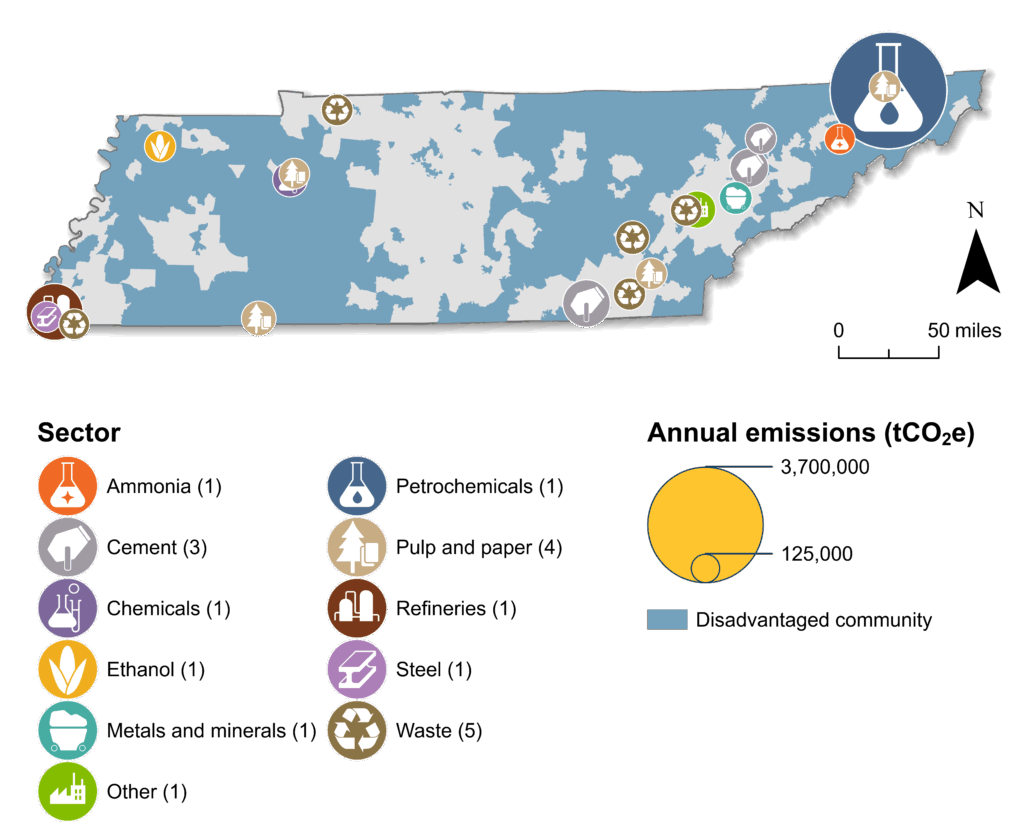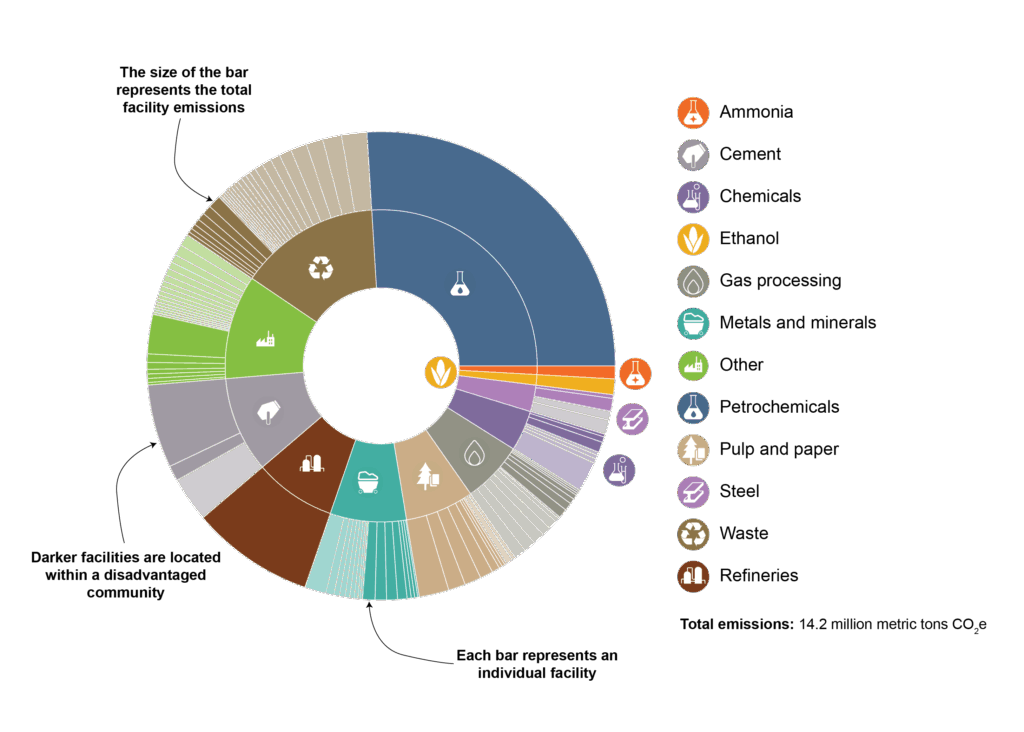Tennessee
Tennessee’s industrial emissions rank among the top 20 nationally. Chemicals, wastes, and miscellaneous combustion (ethanol, auto production, and universities) account for a large share of industrial emissions. Most industrial activity occurs in or near the state’s major metropolitan regions of Chattanooga, Knoxville, Nashville, and Memphis. One chemical plant generates more than 10 percent of the state’s industrial emissions.

- The top 20 emitters are shown on this map, coded by industrial sector. The size of the circles corresponds to emissions: the larger the circle, the higher the emissions.
- Disadvantaged communities (as determined by the federal government) are shaded blue.

- The inner circle provides a visual representation of the share of emissions generated by each industrial sector.
- The outer circle also indicates the share of a sector’s emissions generated in disadvantaged communities.
STATE ENERGY POLICY:
Considering a state’s broader energy policy landscape is helpful when developing policies to support industrial modernization. Tennessee has not established greenhouse gas emissions targets, an electricity portfolio standard, or a clean heat standard. While these formal commitments are not prerequisites for innovative industrial policy, they can provide a supportive framework. In addition, streamlining permitting and establishing an efficient, transparent appeals process that engages local communities early while giving clarity and assurances to project developers are key components of effective state energy policy. Discussions around innovative industrial policy present an opportunity for broader conversations about state energy policy to ensure a mutually reinforcing strategy.
LEGISLATIVE context & opportunity:
Let us know if you are aware of additional legislation advancing industrial innovation in Tennessee that should be featured. The context below is not exhaustive and serves as an example of recent policies and programs and where there may be future opportunities:
- Select Tennessee Certified Site Program: This program, led by the Tennessee Department of Economic and Community Development, helps create market-ready industrial sites in locations proposed by local communities. There is a unique opportunity to further develop this program with public policies that align with community priorities and promote industrial innovation by incentivizing clean energy integration and advanced manufacturing.
- A factsheet by the Renewable Thermal Collaborative identifies electrification of Tennessee’s ammonia, soybean oil, and container glass subsectors as opportunities to reduce emissions significantly.
Explore recent legislation in Tennessee and all 50 states by clicking on a specific year: 2025 legislation, 2024 legislation, 2023 legislation.
